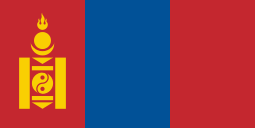Asian Physics Olympiad
The Asian Physics Olympiad (APhO) is an annual physics competition for high school students from Asia and Oceania regions. It is one of the International Science Olympiads and is also the only regional competition in physics to date. The first APhO was hosted by Indonesia in 2000. The next Asian Physics Olympiad will be held in Saudi Arabia.
APhO has its origins in the International Physics Olympiad and is conducted according to similar statutes (One five-hour theoretical examination and one or two laboratory examinations). It is usually held about two months before the IPhO and can also be seen as additional training for the teams.[1]
Each national delegation is made up of eight competitors (unlike five in the IPhO) plus two leaders. Observers may also accompany a national team. The leaders are involved in the selection, preparation and translation of the exam tasks, and the translation and marking of exam papers. The students compete as individuals, and must sit through intensive theoretical and laboratory examinations. For their efforts the students can be awarded a medal (gold, silver or bronze) or an honorable mention.
History
In 1999, the team leader of Indonesia, Prof. Yohanes Surya, Ph.D., together with the president of IPhO, Prof.Waldemar Gorzkowski, undertook to create and organize the first APhO, which was held in Indonesia, between April 24 and May 2, 2000. At this time, prof. Gorzkowski was also working in Indonesia to help with the IPhO team. The event attracted participants from 12 Asian countries.
Actively participating countries include Australia, Cambodia,[2] China, China Hong Kong SAR, India, Indonesia, Israel, Kazakhstan, Kyrgyzstan, Malaysia, Mongolia, Philippines, Russia, Singapore, Sri Lanka, Taiwan, Tajikistan, Thailand and Vietnam. Russia and Romania have participated as guest teams[3] in the past years.
Differences between APhO and IPhO
APhO has 8 students in each delegation, while IPhO has 5.
The award system
In 2001, the IPhO International Board accepted a new system of awarding the prizes.[4] The new system, designed by Cyril Isenberg and Dr. Gunter Lind was based on relative number of contestants for each type of award, instead of the score boundaries defined by percentage of the best contestant's score.
This was not acceptable for APhO, because the average level of contestants is different. The old system remained in power for APhO since the beginning up to 9th APhO in Mongolia, where the leaders voted for replacing it by a new award system suggested by Dr. Eli Raz from the Israeli delegation. The new system, sometimes unofficially referred to as the Israeli Award System, is based on a reference score that is the lowest between twice the median score and the mean score of the top 3 participants.[5] It was first used on 10th APhO in Thailand.
List of past and future venues
Dates and locations[6] of the APhO:
- 2019 -
 Australia, confirmed
Australia, confirmed - 2018 -
 Vietnam, preliminary contact
Vietnam, preliminary contact - 2017 -
 Saudi Arabia, contact pending
Saudi Arabia, contact pending - 2016 -
 Hong Kong,[7] 1–9 May
Hong Kong,[7] 1–9 May - 2015 -
 Hangzhou, China, 3–11 May
Hangzhou, China, 3–11 May - 2014 -
 Singapore, 11–19 May
Singapore, 11–19 May - 2013 -
 Bogor, Indonesia, 5–13 May
Bogor, Indonesia, 5–13 May - 2012 -
 Delhi, India, 30 April - 7 May
Delhi, India, 30 April - 7 May - 2011 -
 Tel Aviv, Israel, 1 May - 9 May
Tel Aviv, Israel, 1 May - 9 May - 2010 -
 Taipei, Taiwan, 23 April-1 May
Taipei, Taiwan, 23 April-1 May - 2009 -
 Bangkok, Thailand, 24 April - 2 May
Bangkok, Thailand, 24 April - 2 May - 2008 -
 Ulaanbaatar, Mongolia, 20–28 April
Ulaanbaatar, Mongolia, 20–28 April - 2007 -
 Shanghai, China, 21–29 April
Shanghai, China, 21–29 April - 2006 -
 Almaty, Kazakhstan, 22–30 April
Almaty, Kazakhstan, 22–30 April - 2005 -
 Pekanbaru, Indonesia, 24 April - 2 May
Pekanbaru, Indonesia, 24 April - 2 May - 2004 -
 Hanoi, Vietnam, 26 April - 4 May
Hanoi, Vietnam, 26 April - 4 May - 2003 -
 Bangkok & Salaya, Thailand, 20–29 April
Bangkok & Salaya, Thailand, 20–29 April - 2002 -
 Singapore, 6–14 May
Singapore, 6–14 May - 2001 -
 Taipei, Taiwan, 22 April - 1 May
Taipei, Taiwan, 22 April - 1 May - 2000 -
 Indonesia, 23 April - 2 May
Indonesia, 23 April - 2 May
References
- ↑ APhO history Archived June 17, 2009, at the Wayback Machine.
- ↑ APhO 12 participants
- ↑ "Statistics of Participant Countries of APhO". Retrieved 7 May 2016.
- ↑ Minutes of the Meetings of the International Board during the XXXII International Physics Olympiad in Antalya (Turkey) June 28 – July 6, 2001
- ↑ "Statutes of the Asian Physics Olympiad". Retrieved 7 May 2016.
- ↑ "APhO - Past and Future Organizers". Retrieved 7 May 2016.
- ↑ "APhO 2016 Invitation Video". YouTube. 11 May 2015. Retrieved 4 December 2015.
External links
- Website of the 2016 APhO
- Website of the 2015 APhO
- Website of the 2014 APhO
- Website of the 2013 APhO
- Official website of the Asian Physics Olympiad
- Statutes of the Asian Physics Olympiad
- Website of the 2003 APhO
- Website of the 2007 APhO
- Website of the 2008 APhO
- Website of the 2009 APhO
- Website of the 2010 APhO
- Website of the 2011 APhO
- Website of the 2012 APhO
- Homepage of the International Physics Olympiad
- Integral Association of Amateur Mathematicians and Scientists - Conducts Mathematics and Science Olympiads for High school students in India Region
- Iranian Physics Olympiads (IranPhO)